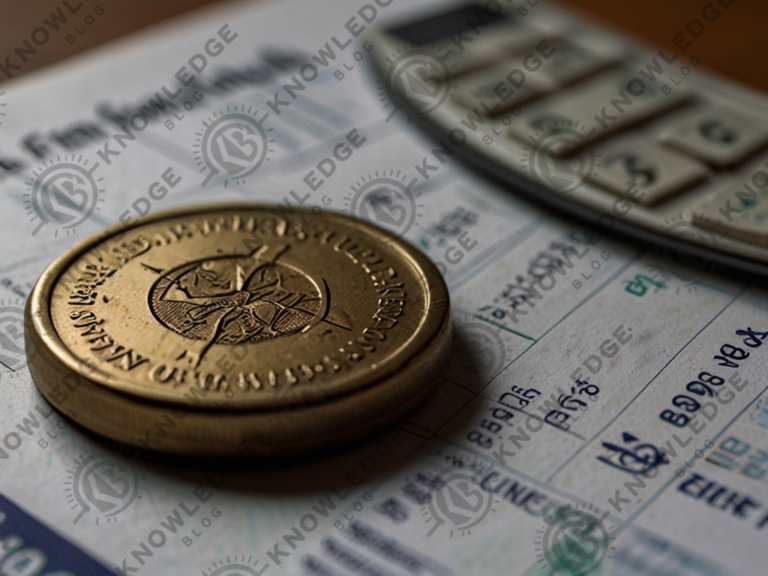Best Way of Organizing Personal Finances

Organizing personal finances is a fundamental aspect of achieving financial well-being and security. Whether aiming to save for a major purchase, plan for retirement, or simply gain control over spending habits, effective organization is key.
In this era of ever-changing economic landscapes and financial challenges, the importance of managing personal finances cannot be overstated.
This article explores the significance of organizing personal finances and outlines strategies to navigate the complexities of financial management successfully.
Importance of Organizing Personal Finances
Organizing personal finances is crucial for several reasons. Firstly, it helps individuals gain control over their money and spending habits, leading to better financial stability and security. By tracking income and expenses, one can identify areas where money is being wasted or overspent, allowing for adjustments to be made to achieve financial goals.
Secondly, organizing personal finances enables individuals to plan for the future effectively. Whether it’s saving for retirement, purchasing a home, or funding education, having a clear picture of one’s financial situation allows for strategic decision-making and long-term planning.
Moreover, organizing finances facilitates the management of debt. By understanding debt obligations and creating a repayment plan, individuals can work towards reducing debt burdens and improving their overall financial health.
Additionally, having organized finances can provide a sense of peace and reduced stress. Knowing where money is coming from and where it’s going eliminates the anxiety that often accompanies financial uncertainty.
Furthermore, organized finances enable individuals to take advantage of opportunities for growth and investment. Whether it’s investing in stocks, real estate, or launch a new business, having a solid financial foundation provides the flexibility to pursue opportunities that can lead to wealth accumulation.
In summary, organizing personal finances is essential for gaining control, planning for the future, managing debt, reducing stress, and seizing opportunities for financial growth and prosperity. It is a fundamental step towards achieving financial well-being and security.
Related Article: How to Create Best Financial System for Yourself
Best Way of Organizing Personal Finances
The best way to organize personal finances may vary depending on individual preferences and financial situations, but here are some general steps and strategies that can be effective:
- Create a Budget: Begin by establishing a budget that details your monthly income and expenses. Categorize expenses into fixed (such as rent or mortgage, utilities, and loan payments) and variable (such as groceries, entertainment, and dining out).
- Track Your Spending: Use tools like spreadsheets, budgeting apps, or financial software to track your spending. This will help you identify areas where you may be overspending and where you can cut back to stay within your budget.
- Automate Bill Payments: Set up automatic payments for recurring bills to ensure they are paid on time and avoid late fees. Consider using online banking or bill pay services for convenience.
- Build an Emergency Fund: Aim to save enough to cover 3-6 months’ worth of living expenses in case of unexpected emergencies like medical bills or job loss. Keep this fund in a separate savings account that is easily accessible but separate from your regular spending accounts.
- Pay Off Debt: Prioritize paying off high-interest debt like credit card balances to avoid accruing excessive interest charges. Consider using strategies like the debt snowball or debt avalanche method to pay off debts systematically.
- Save for Retirement: Contribute to retirement accounts like 401(k)s, IRAs, or Roth IRAs to secure your financial future. If offered, make sure to utilize employer matching contributions, as they can greatly enhance your retirement savings.
- Invest Wisely: Learn about various investment opportunities like stocks, bonds, mutual funds, and real estate to broaden your financial knowledge. Consider seeking advice from a financial advisor to develop an investment strategy aligned with your financial goals and risk tolerance.
- Review and Adjust Regularly: Regularly review your budget and financial goals to track progress and make necessary adjustments. Life circumstances and financial priorities may change over time, so it’s essential to adapt your financial plan accordingly.
By following these steps and strategies, you can effectively organize your personal finances and work towards achieving your financial goals.

How to Avoid Getting in Finance Problems
Avoiding financial problems requires a proactive approach and mindful financial habits.
Here are some key steps to help you steer clear of financial troubles:
- Live Within Your Means: Avoid the temptation to overspend by living within your means. Don’t rely on credit cards or loans to finance a lifestyle beyond what you can afford.
- Pay Bills on Time: Make it a priority to pay your bills on time to avoid late fees and damage to your credit score. Consider setting up automatic payments for recurring bills to ensure they are paid promptly.
- Avoid High-Interest Debt: Steer clear of high-interest debt like credit card balances whenever possible. If you have existing debt, focus on paying it off aggressively to minimize interest charges.
- Avoid Impulse Spending: Resist the urge to make impulse purchases by sticking to your budget and prioritizing your financial goals. Take time to evaluate whether a purchase is necessary and fits within your budget before making it.
- Monitor Your Credit: Regularly monitor your credit report for any errors or suspicious activity. Keeping a strong credit score can increase your chances of qualifying for improved interest rates on loans and credit cards.
- Seek Financial Education: Continuously educate yourself about personal finance system topics and seek advice from reputable sources. Understanding Financial Intelligence concepts and strategies can empower you to make informed decisions and avoid common pitfalls.
By implementing these strategies and developing healthy financial habits, you can significantly reduce the risk of encountering financial problems and build a secure financial future.
Related Article: Best Personal Financial Management Software
Conclusion
Organizing personal finances is paramount for achieving financial stability and security. By creating a budget, tracking spending, and prioritizing savings, individuals can gain control over their money and work towards their financial goals.
Avoiding debt, building an emergency fund, and investing wisely are essential steps in safeguarding against financial problems. With careful planning and disciplined financial habits, organizing personal finances lays the foundation for a prosperous.






